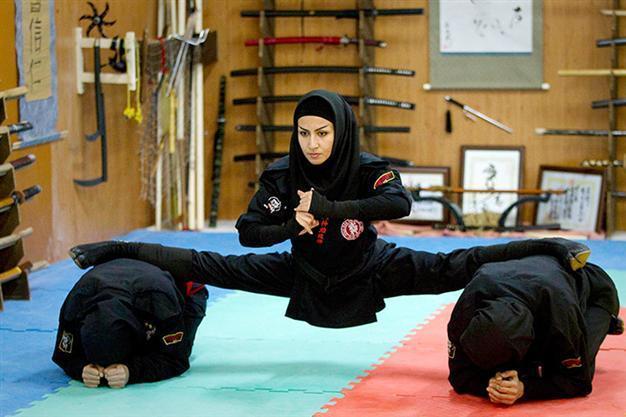Iran starts legal case against Reuters
TEHRAN - Agence France-Presse

REUTERS photo
Iranian authorities said on Monday they have formally started legal proceedings against the international news agency Reuters, after suspending its Tehran bureau over a report about female ninjas."The final decision on Reuters resuming its activities in Tehran depends on the court's verdict," Mohammad Javad Aghajari, the head of the foreign media section of the culture ministry, was quoted as saying by the official Islamic Republic News Agency (IRNA).
Iran's chief prosecutor, Gholam Hossien Mohseni Ejeie, added: "This case has not reached a conclusion and it has not gone to court yet." Sources close to the case told AFP the charges being considered were threatening Iran's national security, propaganda against the regime, or others yet to be declared. No charges have been made public.
Reuters employees in Tehran and elsewhere declined to comment, saying they had instructions from their management not to do so.
A Reuters statement said the news agency has apologised for the ninja story and retracted it.
It protested a travel ban placed on the Reuters bureau chief in Tehran, Parisa Hafezi, who had been forced to hand in her Iranian passport as part of bail conditions imposed by an investigating magistrate pending the court case.
The case stems from a February 16 video report Reuters did on a group of female ninjas training in the city of Karaj, west of Tehran.
The women and the head of the ninjutsu club featured in the report objected that they were mischaracterised as killers in the story's original headline, which read "Thousands of female Ninjas train as Iran's assassins", and said they would sue for defamation.
Reuters subsequently changed the headline to read "Three thousand women Ninjas train in Iran". It later retracted the report.
Aghajari, quoted by IRNA on April 2, said the culture ministry had suspended the Reuters bureau's operations "indefinitely" because the report falsely insinuated there was "the teaching of assassination and terrorism in Iran." Reuters' global editor in chief, Stephen Adler, admitted to the New York Times newspaper on March 29 that the headline was "really bad" and was therefore changed.
But, he said, the error was not malicious and "I don't see factual errors in the story." Iranian authorities routinely monitor and restrict the activities of foreign journalists.
Iran's sensitivity over the way it is portrayed in Western media has become more acute in recent years, particularly since the coverage of mass protests in 2009 over a disputed re-election win by President Mahmoud Ahmadinejad.
Reuters, originally a British company, is part of Canada's Thomson Reuters business information conglomerate since 2008. Its news operations are directed from London and New York.
















